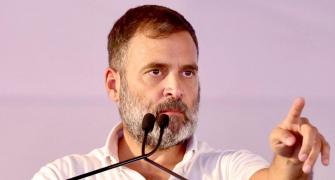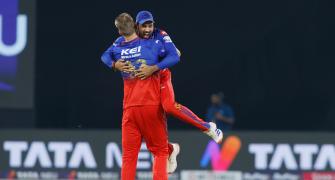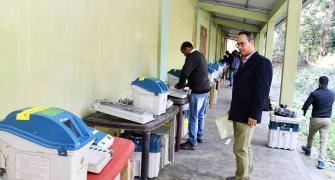Reverse mortgage is a financial option that senior citizen homeowners aged 60 and above can explore. Once all mortgages on their property have been paid off, they may borrow against the equity (or appreciation in value) of their home.
By availing of it, he would receive payment without getting displaced from his current residence. The option of selling his existing flat and moving to a different place is quite traumatic for most people - and especially for older people.
Unlike ordinary home loans (mortgages), a reverse mortgage does not require repayment as long as the borrower lives in the home. Lenders recover their principal, plus interest, when the home is sold. The remaining value of the home goes to the homeowner or to his or her survivors.
Payments may be received in a lump sum, on a monthly basis (for a fixed term or for as long as they live in the home), or on an occasional basis as a line of credit. Currently at least, this is a product that is ideal for a consumer who is asset-rich but liquidity-poor. In fact, there is no competing product in the market.
The reverse mortgage can be used by senior homeowners (say age 65) and older to convert the equity in their home into monthly streams of income and/or a line of credit to be repaid when they no longer occupy the home.
Tenure: Equal monthly payments as long as at least one borrower lives and continues to occupy the property as a principal residence.
Term: EMIs for a fixed period of months selected.
Line of credit: Unscheduled payments or instalments at times, and in amount of borrower's choosing until the line of credit is exhausted.
Modified tenure: Combination of line of credit with monthly payments for as long as the borrower remains in the home.
Modified term: Combination of line of credit with monthly payments for a fixed period of months selected by the borrower.
Situation in India
We still haven't seen many options launched here in India yet. In fact, only Punjab National Bank and Dewan Housing have launched the product and executed deals. Others like Corporation Bank and ICICI Bank are all still in the drawing board stage. SBI has postponed the launch in view of the lukewarm response so far from the end user.
DHFL was the first to launch the Saksham scheme on reverse mortgage in September 2006.
The scheme is currently targeted towards urban customers. All bankers (including a couple of foreign banks) agree that it is a very difficult product to take to the Indian market. The main worry is the social stigma attached to borrowing an especially big issue in case of individuals aged 60 years and above.
Also, a chat with a senior citizen reveals that he would use the monies from reverse mortgage for a medical emergency, but would not be comfortable using it for say a luxury like a holiday.
Currently there are two types of schemes available - the monthly payment scheme and the lumpsum scheme. Monthly scheme is the standard option. Lumpsum payment is conditional and is offered for medical treatment, loan prepayment etc.
Eligibility and requirements:
Individual:
- Must be 60 years of age or older
- Must own your property
- Must occupy your property as primary residence
Property:
- Single family home occupied by the borrower
- Not more than say, 17 year old building
- Clear, free title, NOC from society
The mortgage amount is based on:
- Age of the youngest borrower.
- Current interest rate.
- Lesser of appraised value or the internal upper limit.
Financial:
- No income or credit qualifications are required of the borrower.
- No repayment as long as the property is the primary residence.
- Closing costs may be financed in the mortgage.
What you need to know
Reverse mortgage is ideal for someone who is 70 years and above, living in a property worth at least Rs 30 lakh (Rs 3 million) and above. For senior citizens less than 70 years of age, the loan amount will not be attractive enough to justify mortgaging their property. The older a borrower, the larger the percentage of the home's value that can be borrowed.
The hallmarks of a good reverse mortgage product are flexibility, availability and simplicity of use. It should also give an easy exit clause and be subject to the banking Ombudsman's jurisdiction.
As a consumer you should be aware of the eligibility -- the property should not be more than 20 years old for availing reverse mortgage. It is better to avail of a joint liability scheme, though the amounts will be lower. Valuation for the property is done by the lending institution and is the basis for payment. This may differ from the perceived value of the property.
What should you be aware of as a consumer? You ought to look at the systems of the bank and its capability to handle this product, which will be a little complex to start with.
There are no asset or income limitations on borrowers receiving reverse mortgages. The only condition is that this money should not be invested in a business.
The company assesses the value of the property and lends about 30 per cent of the value to a customer in the age group of 60 years and about 60 per cent to those of 80 years and above.
Options
One option that some senior citizens could consider is going to quality retirement homes, and selling/ renting their property asset. However this also involves going to a new place and creating a new infrastructure for yourself - from a grocer, a maid, a cook, a doctor, a bank, a CA to filing your IT returns. Many people find this intimidating.
These products are still evolving. But it helps that the central government is keen on this, and that we have more than 30 years' experience of the developed nations to guide us.
For more on financial planning, click here







